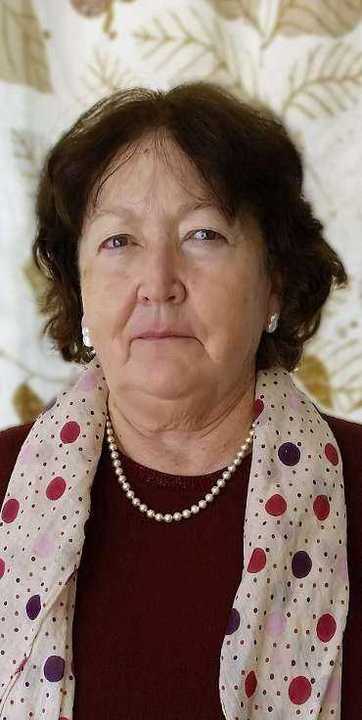María Jesús Viguera, new member of the Spanish Royal Academy of History
Casa Árabe offers Ms. Viguera its warmest congratulations
February 02, 2015
MADRID
Spain’s Royal Academy of History has chosen María Jesús Viguera Molins (El Ferrol, A Coruña, 1945) as a numerary academy member to fill the vacancy left upon the death of Eloy Benito Ruano, who was the holder of academy medal number 33.
Upon being selected, through a candidacy presented by Serafín Fanjul, Miguel Ángel Ladero and Luis Agustín García Moreno, the Royal Academy of History has become, along with the RAE, the academy with the greatest presence of women.
Viguera’s name is added to a list which includes Carmen Iglesias Cano, Josefina Gómez Mendoza, Carmen Sanz Ayán, Enriqueta Vila Villar and Pilar León-Castro Alonso.
The new academy member, who was a recipient of the Juan March Foundation fellowship, has been a tenured professor of Arab and Islamic Studies at the Universidad Complutense (Madrid) since 1983. She has run the Department of Arab and Islamic Studies there for 12 years, and in it she founded and managed the journal Anaquel de Estudios Árabes since it was first published.
She is a professional with whom Casa Árabe has collaborated a great deal.
At present, she is the director of the journal Hesperia. Culturas del Mediterráneo and co-directs the collection Horizontes de al-Andalus.
She has been a correspondent of Barcelona’s Reial Acadèmia de Bellas Letras since 1990, and of the Real Academia de Córdoba de Ciencias, Bellas Letras y Nobles Artes since 1994.
At the Universidad Complutense, she earned her university degree in Semitic Philology in 1968, receiving a Special Award for her studies, which she also received for her doctoral thesis (1973) on fourteenth-century history of the Maghreb, directed by her teacher, academy member Fernando de la Granja Santamaría.
In 1968, she began her career at the UCM, which she has also spent at the Universidad Autónoma de Madrid and the University of Zaragoza, as well as having been a guest professor at several Spanish universities, and at the Universities of Evora, Lisbon, Fez, Casablanca, the United Arab Emirates, Nantes and Lyon.
She belongs to editorial committees and advisory and scientific boards like those of Al-Qantara, Encyclopédie Berbère (Aix-en-Provence), Estudios de Historia de España (Buenos Aires), Magriberia (Fez), Revista del Instituto Egipcio (Madrid), Miscelánea de Estudios Árabes y Hebraicos (Granada), Aragón en la Edad Media (Zaragoza), Cuadernos de Medio Oriente (Costa Rica), Hamsa (University of Lisbon and Evora).
She has been the curator of several exhibitions, including “Málaqa: From Malaca to Málaga” (2009); “Las artes del libro oriental. Manuscritos en la Fundación Lázaro Galdiano” (“The Arts of the Eastern Book: Manuscripts at the Lázaro Galdiano Foundation,” 2010-11), and “Arte y Culturas de al-Andalus, La Alhambra” (“Art and Cultures of Al-Andalus: The Alhambra,” 2013-14).
Her main lines of research are the history of Al-Andalus, the historiography and contexts of Spanish Arabism, and the history of Arab manuscripts in Spain.
She has published 55 books, editions, translations and collective books. Amongst these, she was the coordinator and co-author of four volumes (on Taifas, the Almoravids, the Almohads and the Nasrids) in the “History of Spain by Menéndez Pidal.”
To date, she has been the author of 257 scientific articles and book chapters, and she has collaborated in writing “Historia de España” (“History of Spain”), the “Encyclopaedia of Islam” and the “Diccionario Biográfico de Historia de España” (“Biographic Dictionary of Spain’s History”).

